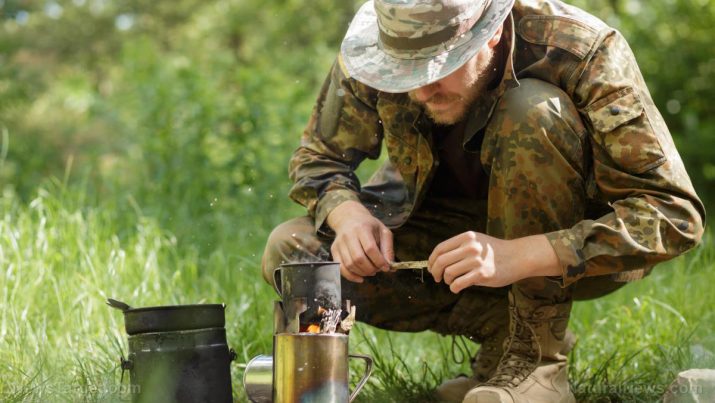What are the absolute must-learn skills every prepper should know?
Friday, December 14, 2018 by Mary Miller
http://www.bugout.news/2018-12-14-absolute-must-learn-skills-every-prepper-should-know.html

You’re going to need a lot more than a well-stocked pantry and a survival cache of medical supplies if you want to make it out of a disaster scenario alive. Your supplies and equipment can only get you so far if you don’t know what to do with them. However, being a smart prepper can get you through all sorts of dire emergency situations, even with limited supplies. What you should have is a set of useful survival skills that you can start practicing even now. Here are a few of the most basic survival skills that every prepper must absolutely know. (h/t to MDCreekMore.com)
First aid and emergency medical care
Medical training is definitely a must-have skill for every prepper. Illnesses and injuries can happen anytime, especially if you’re in a vulnerable situation. Being able to treat them immediately will greatly improve your chances of survival. You can learn how to do this by taking classes in cardiopulmonary resuscitation (CPR) and basic first aid. If you can, you may also choose to take EMT classes, but at the very least, you should be able to treat minor injuries in case of emergencies. (Related: Medical preparedness: How to treat minor injuries in the field.)
Water purification
Water is essential to survival. Without a reliable source of clean, drinking water, you probably won’t last more than three days. This is why seeking out and purifying water for drinking should be one of your top priorities in a survival situation. If you drink unclean water, you expose yourself to parasites and waterborne diseases that can only make your situation a whole lot worse. Stagnant water promotes the growth of bacteria, so this should only be used as a last resort. In any case, water must always first be boiled, filtered or chemically treated before drinking.
Food acquisition and preservation
This includes hunting and foraging for food, along with food preservation and storage techniques. For hunting, you can either hunt game directly, set up traps, or go fishing. Learn how to build different kinds of traps, such as snares, deadfalls, box traps, fish traps, and steel traps. You can also forage for plants, but you should be able to differentiate between edible and poisonous herbs. You should also learn various food preservation techniques such as canning, drying, freezing, curing with either salt or sugar, smoking, and pickling. You can then extend the shelf life of your food by properly storing them in dry, cool places away from exposure to heat, sunlight and oxygen.
Building temporary shelters
Now that you have your basic needs of food, water, and first aid covered, the next thing you need to learn is how to build a temporary shelter. A temporary shelter can protect you from the elements. A basic lean-to shelter is one of the easiest survival structures you can build. All you need are some building materials and a natural formation, such as a wall, a rock face, or a fallen tree. As the name suggests, you simply need to make your materials lean against the natural formation to create your makeshift shelter.
Using tools and making repairs
You don’t have to be mechanically inclined, but you should still have a basic understanding of how some useful machines and equipment operate. You can also learn to make minor repairs to broken and damaged objects. Some tools you should familiarize yourself with include hammers, saws, drills, screwdrivers, winches, vise grips, wire cutters, and files. Try to keep a survival toolbox with you at all times if you can. You never know when it might come in handy.
You can read more articles on other useful survival skills at Survival.news.
Sources include:
Tagged Under: Tags: bug out, chaos, emergencies, emergency medicine, first aid, Food Preservation, off grid, preparedness, prepper, prepping, self sufficiency, SHTF, survival, survival food, survival skills, Survival Tips, survivalist, temporary shelters, water purification

